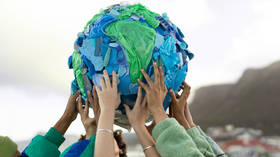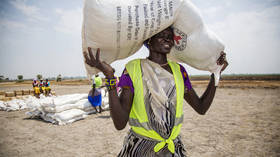African startup secures multimillion-dollar funding

Ethiopian tech startup Kubik has become the first company of its kind to secure multimillion-dollar funding for a sustainability project in the country, the AFROTECH news agency reported on Thursday.
The startup, established in 2021 by Kidus Asfaw and Penda Marre, operates a factory at the Adama Industrial Park in Addis Ababa and specializes in transforming plastic waste into low-carbon bricks, columns, and beams.
It has recently secured an additional $1.86 million in financing, taking its seed round to a total of $5.2 million. The amount positions Kubik as the first Ethiopian company to secure a multimillion-dollar investment specifically dedicated to climate and sustainability solutions.
The round was supported by investors such as African Renaissance Partners, a leading venture capital firm in East Africa, along with Endgame Capital, which invests in technologies that address climate change, and King Philanthropies, which invests in climate- and poverty-related projects.
“Today’s fundraise will allow us to keep up with the escalating demand we’re experiencing, scale our operations further with enhanced technology, empower more female waste collectors and turbo-charge our pan-African growth ambitions,” said Kidus Asfaw, co-founder and CEO of Kubik.
According to the founders, Kubik’s building materials are 40% less expensive per square meter compared to alternatives such as cement. Additionally, their low-carbon composition results in a reduction of greenhouse emissions by a factor of five.
Africa’s contribution to global plastic production stands at just 5%, while its consumption rate is slightly lower at 4%, the World Health Organization (WHO) has reported.
However, the continent’s expanding population and rapid urbanization are fueling a surge in single-use plastic, exacerbating environmental concerns.
The estimated cost of damage resulting from marine plastic pollution in West Africa ranges from $10,000 to $33,000 per ton of plastic waste, the World Bank has reported.














